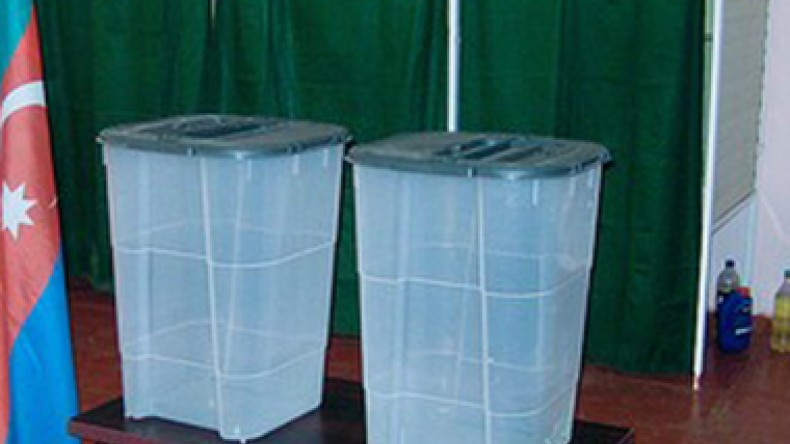
Rights groups say parliamentary elections in Azerbaijan will be far from democratic
Azerbaijani citizens are set to go to the polls on 1 November to vote for their representatives, but this process will be far from democratic. This country has not held a democratic election for more than 20 years, and Azerbaijan’s parliament, the Milli Mejlis, is little more than a rubber-stamping body. These elections also take place against a backdrop of unprecedented repression as well as recent criticism from international bodies, writes Rebecca Vincent, a human rights activist and former US diplomat, on the website of Index on Censorship.
Vincent highlights that although the election’s results may be a foregone conclusion, they do have political significance for Azerbaijan’s international relations. As detailed in the report No Holds Barred: Azerbaijan’s Human Rights Crackdown in Aliyev’s Third Term by the Sport for Rights campaign, during Aliyev’s third term Azerbaijan’s relations with key international bodies have sharply deteriorated – in particular, the OSCE and the European Parliament.
According to Vincent, the unprecedented cancelling of election monitoring mission in Azerbaijan by OSCE parliamentary assembly, the ODIHR/OSCE as well as the European Parliament was a serious blow to the Aliyev regime, which needs international observers to lend an air of legitimacy to what can only be an illegitimate vote.
EURASIANET.org cites watchdog groups as maintaining that the elections offer no real choice because most candidates either directly or indirectly aligned with President Ilham Aliyev’s administration.
According to The Irish Times, there is little doubt that Yeni Azerbaijan, the ruling party chaired by Ilham Aliyev, will retain its majority in the one-chamber parliament. “Azerbaijan’s leading opposition parties have all decided to boycott the poll, citing multiple electoral irregularities, including the official intimidation of their supporters. That leaves any seats not won by Yeni Azerbaijan up for grabs by various nominally opposition parties or independents known for their loyalty to Aliyev,” the newspaper writes.
Mr Aliyev, who inherited the presidency from his father Heydar Aliyev, a former KGB colonel, in 2003, has always been intolerant of dissent, but the ferocity of Azerbaijan’s crackdown on human rights over the past two years has taken even the country’s critics by surprise. Rights activists, independent journalists, and opposition politicians have been muzzled using repressive legislation or thrown in jail on criminal charges their supporters say have been fabricated. Others have fled into exile or are too afraid to speak out against the authorities. “For most of the last two decades Azerbaijan’s importance as an oil and gas supplier has provided the country with some immunity from western criticism. But the escalating oppression of government critics is straining relations European democratic institutions to the limits,” The Irish Times points out.
Amnesty International highlights that at least 20 people are currently imprisoned in the country merely for having challenged the government’s policies or having attempted to help victims of human rights abuses. Most of the country’s independent human rights organisations have been shut down. “Azerbaijani authorities must uphold their human rights obligations and immediately release all prisoners of conscience, as well as stop persecuting civil society activists, including human rights defenders,” said Denis Krivosheev, Amnesty’s Deputy Director of Europe and Central Asia.
Azerbaijan’s Parliamentary elections are scheduled on 1 November 2015, where 767 candidates will struggle for the 125 seats in the one-chamber parliament. There were recent local reports about the authorities faking a growth of the number of “independent” candidates for the elections. The international agencies reportedly took up rather stern stance regarding the upcoming parliamentary elections. On 11 September 2015, Michael Georg Link, Director of the OSCE Office for Democratic Institutions and Human Rights (ODIHR), announced that, due to restrictions imposed by the Azerbaijani authorities, ODIHR had no choice but to cancel its mission to observe the country’s parliamentary elections. Earlier, ODIHR had reported about its intention to send 380 observers to Azerbaijan.
Newsfeed
Videos






























